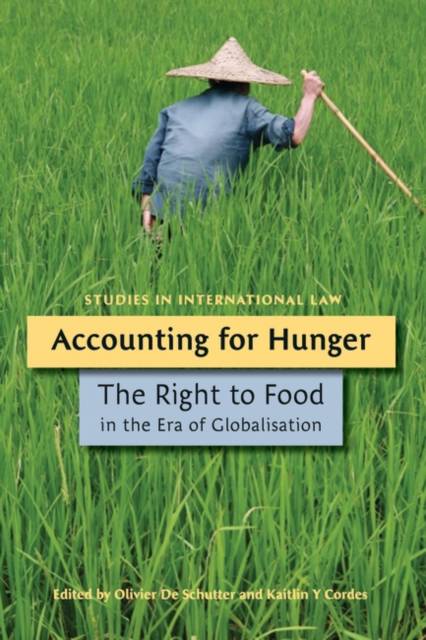
- Retrait gratuit dans votre magasin Club
- 7.000.000 titres dans notre catalogue
- Payer en toute sécurité
- Toujours un magasin près de chez vous
- Retrait gratuit dans votre magasin Club
- 7.000.0000 titres dans notre catalogue
- Payer en toute sécurité
- Toujours un magasin près de chez vous
Accounting for Hunger
The Right to Food in the Era of Globalisation
Olivier De Schutter, Kaitlin Y Cordes
145,45 €
+ 290 points
Description
The challenge of global hunger is now high on the agenda of governments and international policy-makers. The contributors in this study address that challenge by looking at the obstacles which stand in the way of implementing a right to food in the era of globalization. The right to food, the book argues, can only be realized if governance improves at the domestic level and if the international environment enables governments to adopt appropriate policies. The book's essays demonstrate how improved accountability at the national level and reform of the international economic environment - in the areas of trade, food aid, and investment - go hand-in-hand in the move towards full realization of the right to food, while reforms at domestic level are key in effectively tackling hunger, including reforms that improve accountability of government officials. The current regimes of trade, investment, and food aid, as well as the development of biofuels production - all of which contribute to define the international context in which States implement such reforms - should be reshaped if these national efforts are to be successful. The title - Accounting for Hunger - emphasizes the point that accountability both at domestic and international level must be improved if sustainable progress is to be achieved in combating global hunger. The implication is that the extraterritorial human rights obligations of States - beyond their national territories in their food aid, investment, or trade policies - as well as the strengthening of global governance of food security - as is currently being attempted with the reform of the Committee on World Food Security in Rome - have a key role to fulfill. Domestic reforms will not achieve sustainable results unless the international environment is more enabling of the efforts of governments acting individually. (Series: Studies in International Law - Vol. 36)
Spécifications
Parties prenantes
- Auteur(s) :
- Editeur:
Contenu
- Nombre de pages :
- 288
- Langue:
- Anglais
- Collection :
- Tome:
- n° 36
Caractéristiques
- EAN:
- 9781849462266
- Date de parution :
- 14-11-11
- Format:
- Livre relié
- Format numérique:
- Genaaid
- Dimensions :
- 157 mm x 236 mm
- Poids :
- 589 g

Les avis
Nous publions uniquement les avis qui respectent les conditions requises. Consultez nos conditions pour les avis.






